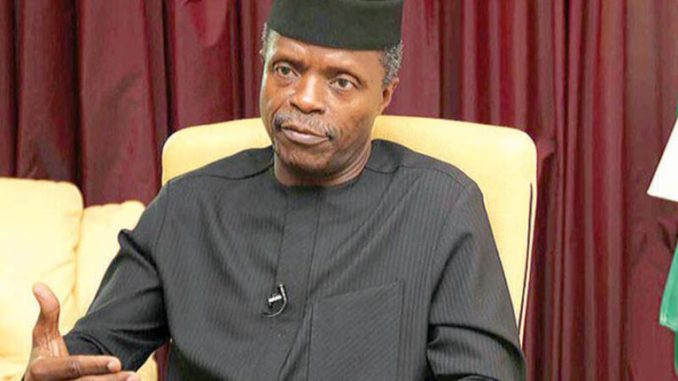
With the Federal Government becoming increasingly clueless in the face of deadly security breaches, the long-rejected state police option is gathering momentum across the country. Vice-President Yemi Osinbajo has tabled unassailable arguments for its existence. Similarly, state governors and federal lawmakers have cast aside their differences to support it. This convergence is the most powerful indication yet that the time is ripe to devolve Nigeria’s policing architecture.
Osinbajo argued at the 2019 National Security Summit organised by the Senate that state police was the way forward. This resonates with Nigerians, given our macabre existential security challenges. “The nature of our security challenges is complex and known,” Osinbajo stated. “We cannot realistically police a country the size of Nigeria centrally from Abuja. State police and other community policing methods are clearly the way to go.” With a population inching towards 193 million, a multi-ethnic terrain and a federal structure in principle, Osinbajo’s proposal should force the issue.
Likewise, Governor Abdulaziz Yari of Zamfara State, who doubles as the chairman of the Nigeria Governors’ Forum, says that most of his colleagues support the creation of state police. His caveat that the decentralisation of the system be done in phases should address the primordial fear of a group like the Arewa Consultative Forum. The ACF believes that governors would misuse state police, just as they are doing with state electoral commissions. But experience from other federal climes suggests otherwise.
Security-wise, the past few years have been really chilling. Armed robbery, kidnapping, militancy, the Boko Haram insurgency, cattle rustling and, lately, Fulani herdsmen terrorism have assumed frightening dimensions. On New Year’s Eve, gangsters slaughtered 19 people returning from church in Emohua, Rivers State. The next day, herdsmen murdered 73 persons in Logo and Guma local government areas in Benue State. Herdsmen killings overwhelm Taraba, Adamawa, Plateau and Southern Kaduna. They underscore the need for a new policing structure.
In the South, armed robbery, militancy in the oil-rich Niger Delta, kidnapping and ritual killings occur at a frightening pace. Whole communities are left with little or no protection because more than half or over 150,000 police personnel are illegally deployed by the federal authorities to guard government officials, Very Important Persons and corporate organisations. This abnormality has survived all Inspectors-General of Police, including the incumbent, Ibrahim Idris, though it can be easily reversed by a capable President.
For this reason, Nigeria falls short of the United Nations recommended standard of one police officer to 400 persons. The consequence is a debilitating malfunction of the country’s security system. Take Zamfara State as an example. It has an estimated population of 4.5 million, but is under-policed with less than 5,000 police officers. It means there is a police officer to secure over 800 citizens. The impact showed early this month, after about 600 cross-border bandits attacked Zurmi LGA again, slaughtering 39 people.
With its own police force, Zamfara could identify the source of the menace and put in place measures and resources to tackle it effectively. In the current federal arrangement, the states are at a great disadvantage. In principle, a governor is the chief security officer of a state; however, the commissioner of police is answerable to the IG. This oddity is a nightmare for a governor, who funds the police with state resources, but has no control over them.
The missing link in the agitation for state police is the political will by the ruling All Progressives Congress and President Muhammadu Buhari to force through the requisite constitutional amendments. For now, the APC and Buhari need to harmonise their divergence on this issue. The party has already voted for state police, going by the report of its Committee on True Federalism, chaired by Governor Nasir el-Rufai of Kaduna State. Buhari, however, had dismissed the idea in his New Year’s Day broadcast. But, the recent carnage in Benue, Taraba, Zamfara states evinces the fact that he has no option but to approbate it.
As of 2016, there were approximately 18,000 police forces in the United States, although the operations of the Federal Bureau of Investigation cover the entire country. There, cities, towns, counties, universities and states have their own forces. Spain, another example, has different police forces, including the Civil Guard, the National Police and the Local Police, which are funded by the mayor of each town but cooperate with the other tiers of forces. To ensure maximum security, even the United Kingdom – a unitary state – has entrenched the devolution of policing, as there were 43 police organisations as of March 2014.
The current police structure incentivises crime. To put an end to it, Buhari, the APC, the National Assembly and the governors should team up for the introduction of a decentralised policing with clear timelines on when and how it will happen.
END

Be the first to comment